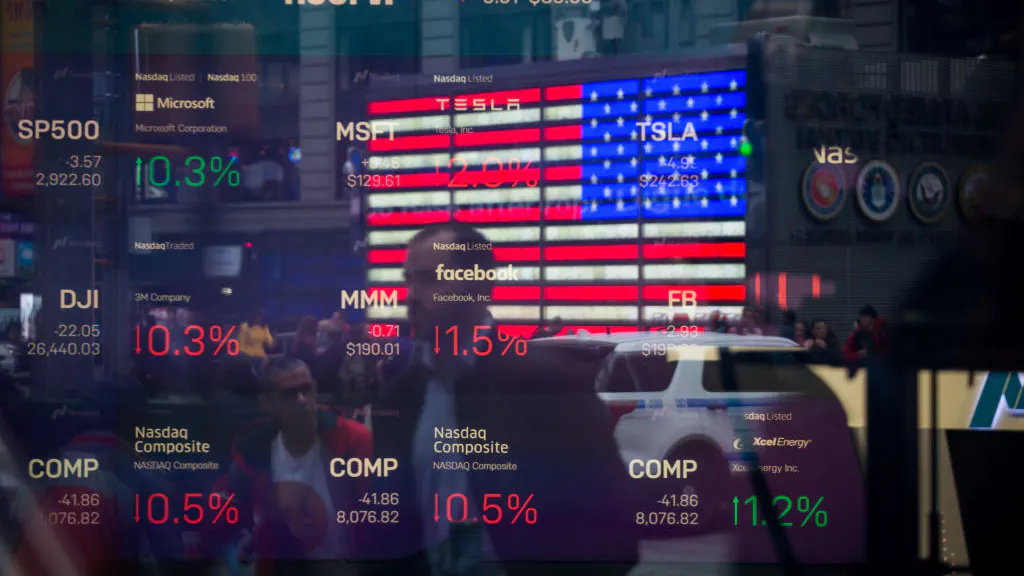The S&P 500, a key stock market index, could drop another 15% to 20% before fully adjusting to a looming recession, according to a recent analysts’ note from investment bank Morgan Stanley.
“The bear market will not be over until recession arrives or the risk of one is extinguished,” the note predicted, per Bloomberg. Meanwhile, analysts from Goldman Sachs said stock traders were only pricing in a mild recession, “leaving them exposed to a further deterioration in expectations.”
The month of June has been marked by a series of selloffs amid dismal news on inflation, as well as the most aggressive move to combat inflation from the Federal Reserve in nearly 30 years. While the Dow Jones Industrial Average and the Nasdaq Composite fell 4.8% during the week ending on June 17, the S&P 500 was down 5.8% — marking its worst week since 2020, according to CNBC.
More selloffs occurred during the week ending on June 10 — the day upon which the U.S. Bureau of Labor Statistics announced that the Consumer Price Index (CPI) rose 8.6% between May 2021 and May 2022, meaning that inflation hit new four-decade record highs and once again surpassed economists’ expectations. The Dow fell 2.5%, the Nasdaq fell about 3%, and the S&P 500 fell 2.7% by the end of the week, according to NBC News.
On June 14, a yield curve inversion — a phenomenon in the bond market that Wall Street watches as a key recession indicator — made the financial world uneasy. An inverted yield curve historically precedes recessions by six months to two years, as indicated by data from the Federal Reserve Bank of St. Louis.
The Federal Reserve’s benchmark interest rate is now between 1.5% and 1.75%. Although rate hikes increase the cost of borrowing money and thereby slow economic activity, central bankers are prepared to hike interest rates again next month if high inflation persists.
While Democratic officials inside the Biden administration have insisted that a recession is not inevitable, former Democratic economic advisers lean in the opposite direction.
Larry Summers, who led the Treasury Department under the Clinton administration and served as National Economic Council director under the Obama administration, said over the weekend that “a whole range of indicators” point to a contraction.
“The dominant probability would be by the end of next year we will be seeing a recession in the American economy,” Summers told NBC News host Chuck Todd, noting that his view is widely shared among forecasters.
However, current Treasury Secretary Janet Yellen acknowledged the economic woes while remaining as optimistic as possible.
“I expect the economy to slow,” Yellen told ABC News host George Stephanopolous. “It’s been growing at a very rapid rate, as the economy, as the labor market, has recovered. We have reached full employment. It’s natural now that we expect a transition to steady and stable growth, but I don’t think a recession is at all inevitable.”
President Joe Biden shot down a question from a reporter on Monday about recessionary risks during his walk on Rehoboth Beach in Delaware.
“The majority of them aren’t saying that,” Biden said. “Come on, don’t make things up, okay? Now you sound like a Republican politician. I’m joking. That was a joke, but all kidding aside, I don’t think it is.”

.png)
.png)

